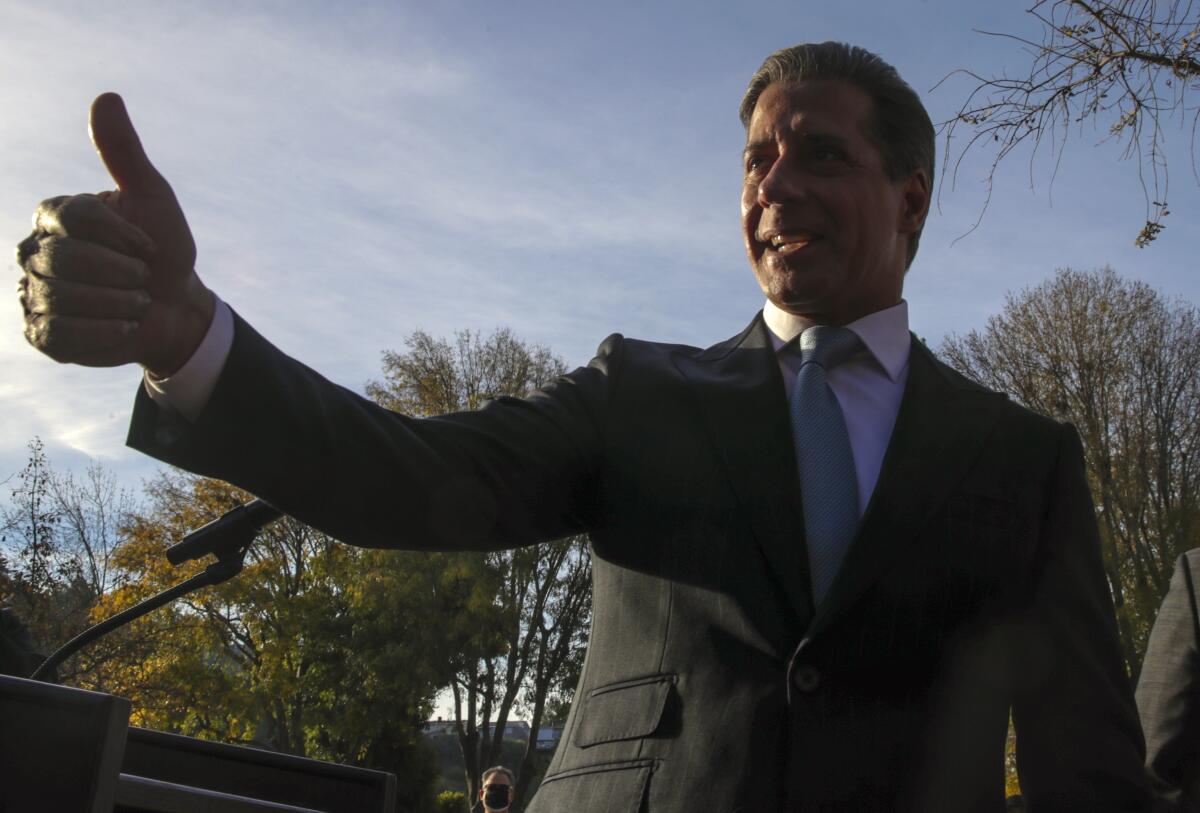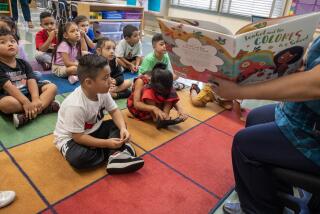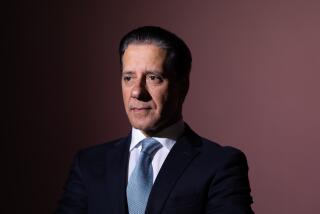New L.A. Unified Supt. Carvalho previews elements of an ambitious 100-day plan

Incoming Los Angeles schools Supt. Alberto Carvalho said Thursday that he would expand high-quality school choices so that every family would have access to the program they want without having to put their child on a bus to get there.
Carvalho, who begins as schools chief in the nation’s second-largest school system Monday, said he’s working on a 100-day plan that will “outline all of the opportunities, challenges, liabilities for LAUSD over a short period of time, but also long term.” He previewed his some of his plans after accepting an award in an online event for his work as the longtime leader of Miami-Dade County Public Schools.
Carvalho is expected to tour schools Wednesday and Thursday. He’s already visited some campuses, met with local leaders and studied data. Carvalho agreed in December to a four-year contract at a salary of $440,000 per year.
He’ll take over from Interim Supt. Megan Reilly, who managed the district after the previous schools chief, Austin Beutner, stepped down June 30 after completing his three-year contract.
A short-term crisis, Carvalho said, is dealing with the harms to learning caused by the pandemic.
“The level of academic regression, unfinished learning, that has piled up is impressive and devastating to the lives of a lot of students across the country, certainly in Miami, and in Los Angeles,” Carvalho said.
His more general strategic goals include selectively reducing class sizes for students most in need, providing students with access to technology at all times, ramping up early education and expanding opportunities for advanced education for older students.
Creating high-quality new schools and programs would be a multiyear project, he said, one he considers necessary “particularly in ZIP Codes where right now they do not exist.”
“And there are some areas that have great quality opportunities for students. Others do not. I don’t think it’s fair or equitable for students to have to get on a bus for hours on end to get to that one school or be shut out of that opportunity,” Carvalho said.
Los Angeles Unified has one of the nation’s largest “magnet” programs, which offer special academic opportunities to students. The effort includes free transportation, but getting to the most coveted campuses can involve long bus rides each way.
Improving student success, Carvalho said, means focusing more on early education.
“If we want to boost graduation rates, start investing in early-childhood education programs to minimize that gap that many students come into schools with as a result of all the factors that we recognize impact their ability to learn or their readiness for elementary education,” he said.
Carvalho accepted an award from National Education Equity Lab, a program that provides college-level credit courses from top universities to public-school classrooms at no cost to students. Carvalho said he wants to bring the Equity Lab and other such opportunities to L.A.
“That includes college professors coming to high school campuses or, reciprocally, high school students, learning on college campuses or in virtual environments,” Carvalho said.
He also praised Advanced Placement courses that lead “to savings to the parents in the millions of dollars through the college credits that are earned while in high school.” Other approaches to advanced learning should also be expanded and tried: “What I’ve described for you is a one-size-fits-none approach” that relies on creating a “portfolio of experiences...where students actually are.”
More broadly speaking, he said, he wanted reforms to be “demand-driven” by the needs and voices of parents and students: “What do parents really want, and how much of what they want is currently being delivered? And what really excites students? Are we listening to to their voice so that they have true agency?
“I think LAUSD has done remarkable work in terms of engaging communities and bringing the student voice on a number of issues,” Carvalho said. “I think we can do even better and do more. It’s really about putting their voice, their demand, into action.”
More to Read
Sign up for Essential California
The most important California stories and recommendations in your inbox every morning.
You may occasionally receive promotional content from the Los Angeles Times.











